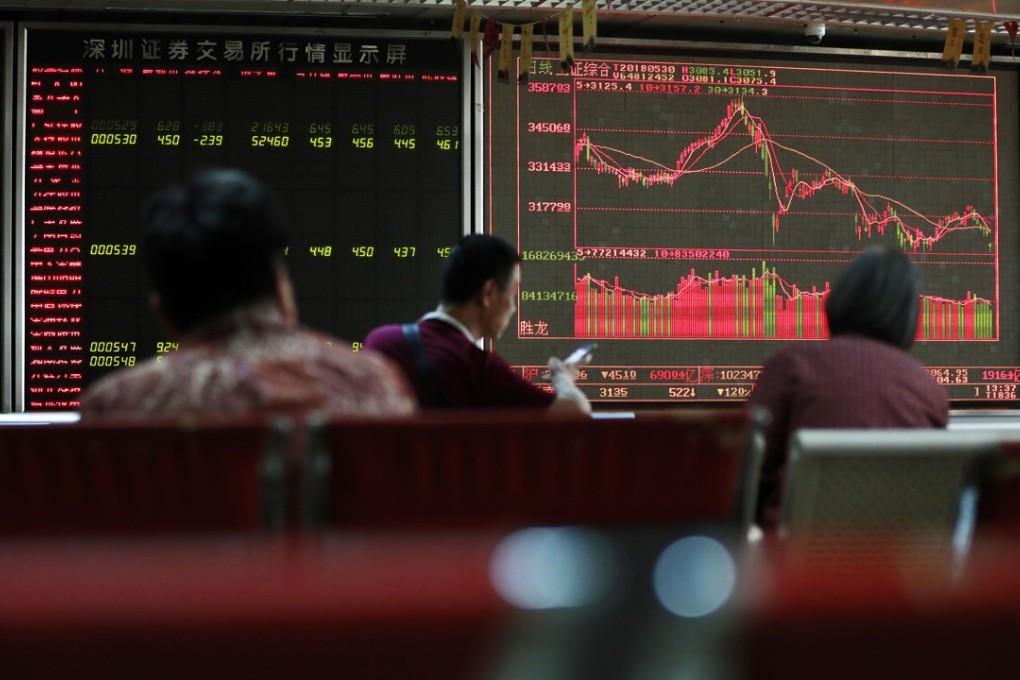Buying dries up in Shanghai after bourse says funds tracking MSCI indexes finish building up positions
About 70 per cent of the nearly 230 mainland-traded stocks that joined MSCI’s emerging markets and global indexes retreated after the Shanghai exchange said major index-based funds were done with stock purchases to track portfolio changes

China’s stocks resumed declines on Friday, with the Shanghai benchmark posting a loss for a seventh time in eight days, as investors shrugged off the inclusion of A shares into MSCI’s equity gauges and concerns about a global trade war resurfaced.
The Shanghai Composite Index dropped 0.7 per cent, or 20.34 points, to 3,075.14 at the close, delivering a 2.1 per cent decline for the week. The CSI 300 Index of large companies lost 0.8 per cent and the small-cap ChiNext gauge tumbled 2 per cent. Hong Kong’s Hang Seng Index closed slightly higher.
About 70 per cent of the roughly 230 mainland-traded stocks that were added on Friday for the first time to MSCI’s emerging markets and global indexes headed south. Buying dried up as the Shanghai Stock Exchange said on its official microblog that major passive funds tracking MSCI’s benchmarks had basically finished building up positions on the stocks. The Shanghai Composite had jumped 1.8 per cent on Thursday, buoyed by foreign buying that boosted purchases of mainland-traded A shares via the exchange links to the highest level in six weeks.
“Short-term impact is limited because capital inflows triggered by index inclusion have been estimated at between US$18.4 billion and US$19.4 billion,” said Bin Shi, head of China equities at UBS Asset Management in Hong Kong. “That’s not such a large amount when you consider the A-share market has an estimated free-float capitalisation of US$3.4 trillion.”
Fears that the trade tension between the US and its allies will escalate also weighed on the broader market. The European Union, Mexico and Canada immediately unveiled retaliatory measures after the Trump administration announced plans to impose tariffs on imports of steel and aluminium from those regions.
Net inflows into mainland equities through the stock connect schemes shrank to 2.28 billion yuan (US$355.6 million) on Friday from 6.63 billion yuan a day earlier, according to Bloomberg data.